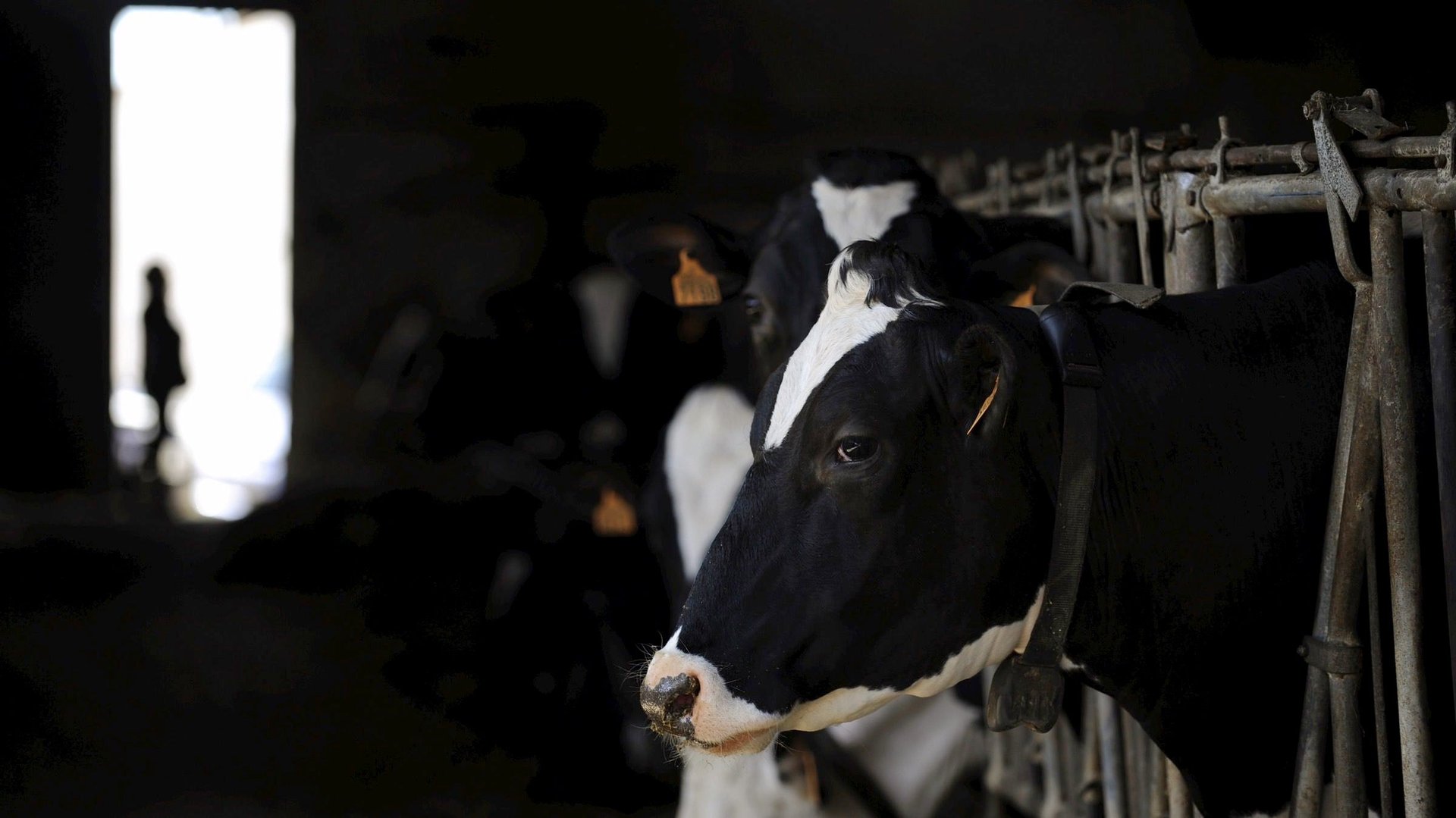Chinese researchers are using roundworm genes to breed beef with more omega-3 fatty acids
You’ve heard of the alpha dog. Get ready for the omega cow.


You’ve heard of the alpha dog. Get ready for the omega cow.
Chinese researchers say they’ve reared beef rich in the beneficial fatty acids associated with fish oils, according to Biotechnology Letters. The researchers, based in the Shaanxi province, said that while much more study is needed, they managed to breed some cows with more than five times the normal levels of omega-3 fatty acids.
Such research might eventually help the beef industry, which could use a marketing boost. In the US the cultural tide is flowing steadily in the direction of eating less meat. And Nutrition Australia, in its newly updated food pyramid, discouraged the consumption of foods that—like beef—have lots of saturated fat. Instead it encouraged foods with “healthy fats,” such as nuts, avocados, and salmon. Beef producers, naturally, would like to add their product to that list.
Meanwhile a startup in Colorado is feeding cows algae in another attempt to produce beef with more omega-3 fatty acids.
For its part, the Chinese team introduced a gene from a nematode worm, also known as a roundworm, into the fetal cells of Luxi Yellow cattle, a good beef-producing stock. Called the “fat1” gene, it helped lead to the conversion of omega-6 to omega-3 fatty acids in the transgenic cows.
The research needs work, though. Of 14 calves that received the gene, 11 died at less than four months old. From a brief of the study:
Further research is needed to determine the causes. Abnormalities may result from the incomplete reprogramming of cells or from some genes being turned on and off during the generation of embryos.
Consumers already feeling queasy about other genetically modified foods—and insisting on labels to help identify them—might not go for transgenic beef, either.